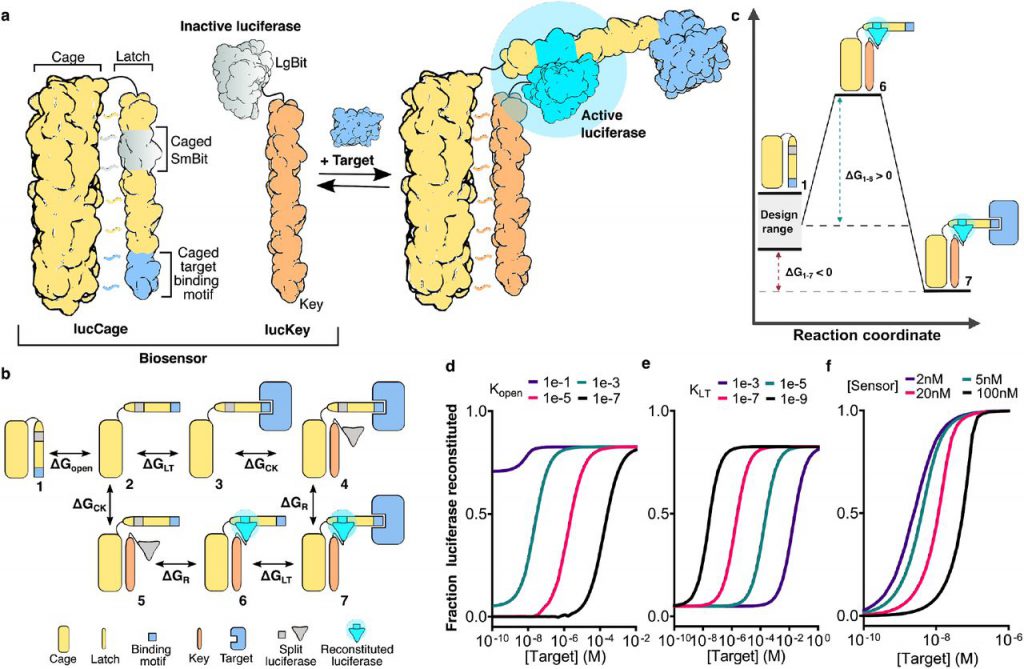In a new study, researchers from the University of Washington have developed a new method to detect the proteins that make up the pandemic coronavirus SARS-CoV-2 and antibodies against it. They designed protein-based biosensors that emit light when mixed with the protein components of the virus or specific antibodies to COVID-19. This breakthrough may lead to faster and more extensive detection in the near future. The related research results were published online in nature with the title of “De novo design of modular and tunable protein biosensors”.
Today, in order to diagnose coronavirus infection, most medical laboratories rely on a technology called RT-PCR, which can amplify the genetic material of the virus so that it can be observed. This technology requires specialized staff and equipment. It also consumes laboratory supplies, which are now in demand all over the world. Shortages in the supply chain have slowed the testing results of COVID-19 in the United States and other regions.
In order to directly detect coronavirus in patient samples without gene amplification, a research team led by David Baker, the corresponding author of the paper, Professor of Biochemistry at the University of Washington School of medicine and director of the protein design institute, designed a new type of biosensor by computer. The protein-based device recognizes specific molecules on the surface of the virus, binds to them, and then emits light through biochemical reactions.
Antibody testing can reveal whether a person has been infected with SARS-CoV-2 in the past. It is being used to track the spread of the COVID-19 epidemic, but it also requires complex laboratory supplies and equipment. Baker’s team also built biosensors that emit light when mixed with antibodies against COVID-19. They found that the biosensor did not respond to other antibodies that might also be present in the blood, including those against other viruses. This sensitivity is important to avoid false-positive results.

“We have shown in the laboratory that this new biosensor can easily detect viral proteins or antibodies in simulated nasal fluid or donated serum,” Baker said. “Our next goal is to ensure that they can be used reliably in a diagnostic environment.” This study demonstrates the power of designing molecular devices with new and useful functions from scratch.
In addition to COVID-19, the baker team also found that similar biosensors may be designed to detect medically relevant human proteins, such as HER2 (a biomarker and therapeutic target for some forms of breast cancer) and Bcl-2 (with clinical significance in lymphoma and other cancers), as well as bacterial toxins and antibodies targeting hepatitis B virus (HBV).
Reference
Alfredo Quijano-Rubio et al. De novo design of modular and tunable protein biosensors. Nature, 2021, doi:10.1038/s41586-021-03258-z.